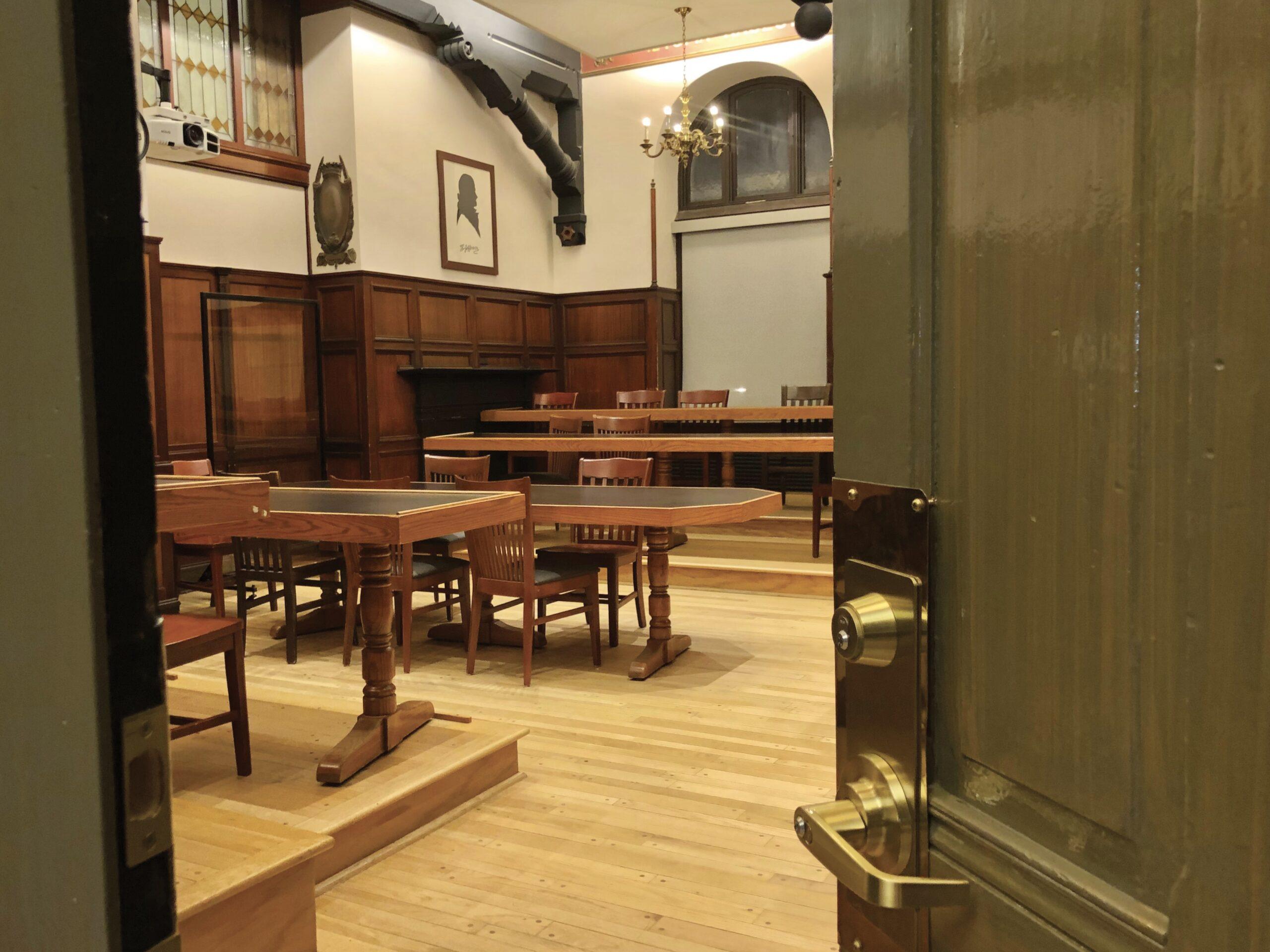Seven first-year students and four upperclassmen won seats in the Georgetown University Student Association (GUSA) Senate, announced by the Election Commission Nov. 7.
The seven first-year senators are Tyler Chase (SFS ’28), Nikki Jiang (SOH ’28), Cameran P. Lane (CAS ’28), Paul Nassar (SFS ’28), Amelia Snyder (SOH ’28), Zadie Weaver (CAS ’28) and Mikey Williams (SFS ’28). Olivia Mason (CAS ’26), Saahil Rao (SFS ’27), Nico Santiago (CAS ’27) and Youngsung Sim (SFS ’27) were elected to the at-large seats.
Lane said he hopes to make winter breaks longer, adding that he hoped newly-elected executives Ethan Henshaw (CAS ’26) and Darius Wagner (CAS ’27) would advocate for the initiative.
“I intend for the first bill I introduce in the senate to be one that calls on the administration to look into expanding winter break to a minimum of four weeks,” Lane wrote to The Hoya. “My hope is that with the incoming Henshaw-Wagner administration, GUSA can keep pressure on the university to take the will of the students seriously and make sure initiatives like these receive genuine consideration.”

Snyder said she ran to ensure that the interests of first-years were represented in the administrative workings of the university.
“I wanted to help bring a voice to the freshman student body, and ensure everyone was getting a say in and understanding the workings of our university,” Snyder wrote to The Hoya. “I am genuinely excited to begin my tenure as a freshman senator and engage with all parts of campus to create a more inclusive, welcoming and equitable university.”
Chase said one of his primary goals is to create open direct channels of communication with first-year students, ensuring each first-year voice is heard and valued.
“I’m especially interested in pursuing a delegate model of representation, where I take the specific comments, concerns and suggestions of the Class of 2028 to the senate with the intent of translating those ideas into meaningful action,” Chase wrote to The Hoya. “I aim to foster an environment where all students feel comfortable reaching out, whether to share ideas, discuss issues or provide feedback on how GUSA can better serve them.”
Jiang said she ran to create change and improve campus life.
“I see a lot of potential to improve our beloved institution through our opinionated student body and the accomplished previous senate,” Jiang wrote to The Hoya. “I hope to improve student life so that everyone can reach their fullest potential.”
Jiang said she plans to work with the dining hall, facilities and management staff to address student concerns.
“I hope to involve campus staff such as Leo’s and Epi’s employees and the maintenance team into GUSA work so that we can be a voice for those on campus that improve student lives on a daily basis,” Jiang wrote.
Nassar hopes to dedicate his term to enhancing security measures and reforming the student club funding system.
“I’m hoping to increase lighting for safety around campus and work on fair allocation of funds to clubs and organizations,” Nassar wrote to The Hoya.
Rao ran to bring transparency to the work of the Finance and Appropriations Committee in the senate, which allocates $1.275 million of student tuition funds annually to clubs.
“This has a direct impact on students’ lives, and almost nobody knows about it or how it works,” Rao wrote to The Hoya.
Rao said his advocacy efforts, including writing the “Institutions and their Ills” column for The Hoya along with other articles, helped motivate his campaign.
“In particular, I wrote columns about reviving GUSA’s biweekly newsletter, which was cited in legislation that ended up bringing it back, and giving H*yas for Choice the right to reserve rooms, a proposal which was included in the winning executive candidates’ platform,” Rao said.
Snyder said she hopes to strengthen the connection and communications between GUSA and the student body since the senate can seem inaccessible to students.
“I think there is a disconnect which inhibits GUSA’s ability to address concerns because, simply put, students don’t know how to get in contact with the senate,” Snyder wrote. “I hope to engage with the concerns of my peers and create solutions to the issues that matter to them.”